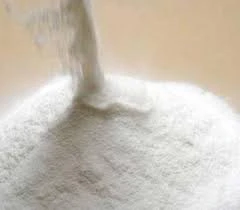
აგვ . 31, 2024 13:47 Back to list
use of hydroxyethyl cellulose
The Use of Hydroxyethyl Cellulose in Various Industries
Hydroxyethyl cellulose (HEC) is a non-ionic, water-soluble polymer derived from cellulose. It plays a crucial role in various industries due to its unique properties such as thickening, gel-forming, and film-forming capabilities. This article explores the multifaceted applications of HEC, highlighting its importance in different sectors.
The Use of Hydroxyethyl Cellulose in Various Industries
The cosmetic and personal care industry extensively employs HEC as a thickening agent in lotions, creams, and shampoos. Its smooth texture enhances the sensory experience of cosmetic products. Additionally, HEC is used to stabilize emulsions, ensuring that oil and water components remain well mixed, which is vital for maintaining product consistency and effectiveness.
use of hydroxyethyl cellulose

In construction, hydroxyethyl cellulose is incorporated into cement-based materials, such as mortars and plasters. It helps improve workability, water retention, and adhesion properties. The addition of HEC allows for easier application and enhances the durability of construction materials, making it an essential additive in building projects.
The food industry also benefits from the use of hydroxyethyl cellulose. It serves as a thickener, stabilizer, and emulsifier in various food products, contributing to the desired texture and mouthfeel. HEC is often found in sauces, dressings, and dairy products, where it helps maintain consistency and prevent ingredient separation.
Moreover, HEC has applications in the oil and gas sector, where it functions as a viscosity modifier in drilling fluids. Its ability to control fluid properties helps enhance the efficiency of drilling operations while minimizing environmental impact.
In conclusion, hydroxyethyl cellulose is a versatile substance with a broad range of applications across multiple industries. Its unique properties make it an invaluable component in pharmaceutical formulations, cosmetic products, construction materials, food processing, and oil drilling. As research progresses, the potential uses of HEC are likely to expand further, solidifying its role as a key player in modern industry.
-
The Widespread Application of Redispersible Powder in Construction and Building Materials
NewsMay.16,2025
-
The Widespread Application of Hpmc in the Detergent Industry
NewsMay.16,2025
-
The Main Applications of Hydroxyethyl Cellulose in Paints and Coatings
NewsMay.16,2025
-
Mortar Bonding Agent: the Key to Enhancing the Adhesion Between New and Old Mortar Layers and Between Mortar and Different Substrates
NewsMay.16,2025
-
HPMC: Application as a thickener and excipient
NewsMay.16,2025
-
Hec Cellulose Cellulose: Multi functional dispersants and high-efficiency thickeners
NewsMay.16,2025







